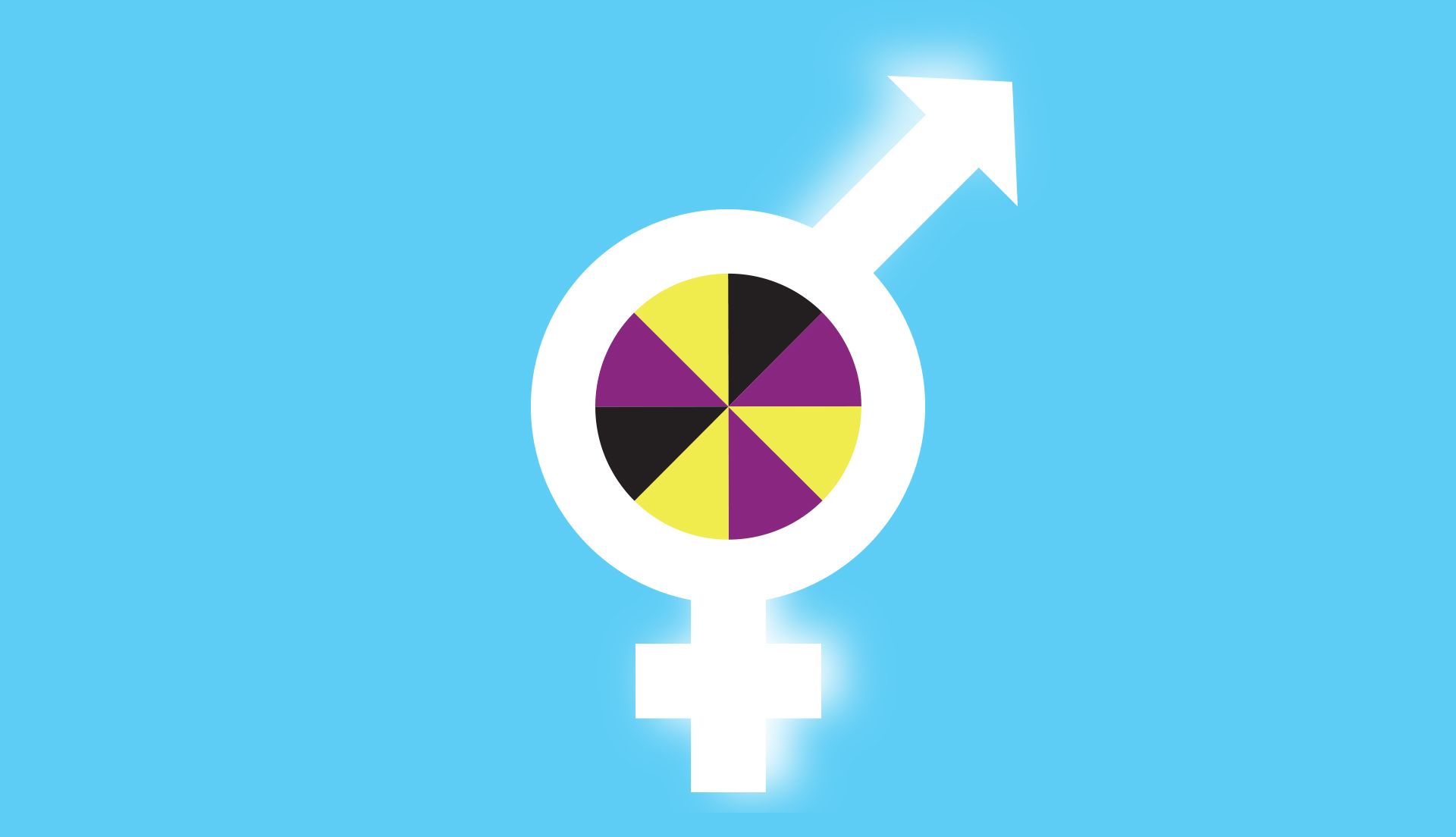Not dissimilar from our relationship to our names, pronouns are closely connected to who we are as a person and are (more than you'd think) frequently used to identify someone throughout the business day. For many of us, being called by the wrong name can easily make us feel like they don't respect or care about who we are; much like being misgendered can make us feel unseen.
More recently, company leaders have become aware of the need to improve corporate policies and practices to incorporate DEI initiatives, but that work has largely focused on women and racial diversity — not individuals who identify as transgender, gender nonconforming, or nonbinary.
More than 2 million Americans identify as transgender, according to the Human Rights Campaign, with many of them facing unique barriers for work advancement. Today, trans people are twice as likely as cisgender people to hear sexist jokes or demeaning comments, according to data from McKinsey & Company. They are also more than three times as likely to feel like they can't talk about themselves or their life outside of work. As a result, nearly one in three trans people are considering resigning, compared to a little over one in five cisgender people.
While there are many things leaders can do to make transgender, gender nonconforming, and nonbinary individuals feel comfortable at work, implementing practices that support employees using, and being called by, their proper pronouns is a key first step. According to a report from Out & Equal Workplace Advocates, using someone's proper pronoun can make a difference in their mental health and well-being. For example, when a transgender or gender nonconforming individual is misgendered, a range of feelings from anxiety, stigmatization, and lowered self-esteem can arise. On the contrary, when an individual experiences gender affirmative support inside and outside of the workplace, they experience less depression and have improved self-esteem, leading to better productivity.
As the workforce continues to include more Gen Zers, 59% of them believe that identification forms should include gender options beyond ‘man' and ‘woman,' according to a study done by the Pew Research Center.
''My best advice for an organization considering a pronoun policy is to definitely not make it about the transgender community or the LGBTQ+ community at all,'' says Ashley Brundage, Founder and CEO of Empowering Differences. As someone who has spoken openly about her transition as an executive, Brundage, who used to serve as VP of Diversity and Inclusion at PNC, says doing so will only ''put the target on the marginalized community.''
''And that's never a good thing because honestly pronouns benefit even cisgender people,'' she adds. ''I have two good friends, Kelly and Kim, who are males and who use male pronouns of he/him. But, they get misgendered all the time in emails and in meeting requests and it slows down their productivity. I also have some girlfriends who are Riley and Sam and [they] also get misgendered all the time in emails and other contacts like Skype meetings. So if we make it about Kelly, Kim, Riley, and Sam, what we've now done is we've let the privileged people who are not battling gender identity or expression be the ones holding the barrier of why pronouns are so important.''
If you're an executive looking to create healthy practices around pronoun usage in the workplace, here's an easy place to start.
1. Normalize Sharing Your Own Pronouns: Leaders can encourage employees to respect each other's pronouns by sharing their own when conducting meetings and doing team introductions, or in written communication including email or Slack. For example, at the start of a Zoom call or in-person group session, an executive can say, ''Hi! My name is Tom. I'm the head of marketing and my pronouns are she/her. I'll let my team introduce themselves now.''
2. What to Do When You Don't Know Their Preferred Pronouns: You don't want to assume someone's pronouns, and with the Internet you don't have to. Last year, LinkedIn, Twitter, and Instagram all rolled out new features that allow users to add pronouns to their profile in order to help avoid being misgendered by colleagues, recruiters, and future employers. In the event that you can't find an employee's proper pronoun online, then using the singular ''they'' is a safe bet. ''We're working with a new marketer. They're working on a report that they'll share out.''
3. Know How to Properly Correct Yourself If You Make a Mistake: According to a Harris Poll survey, 65% of Americans agree that employers should intervene if they overhear an employee regularly misusing a co-worker's pronouns. To make a correction after misgendering someone, first give an apology and then restate your sentence using the person's proper pronoun. For example, if you accidentally use she/her to refer to someone who goes by they/them, then simply say, ''My mistake, I'm sorry. They will take the lead on this project.''
Finally, ''as it relates to pronouns and really everything else, I would advise organizations to also reach out to experts in this space because a trans or LGBTQ+ inclusivity assessment is definitely needed,'' says Brundage. ''Don't think you're going to read an article [Ed note: such as this one] and then be able to know all the answers. You should invest the money into that community and bring them in as an expert.''
Similar to other DEI programs around race, gender, and culture, Brundage explains that leaders should treat LGBTQ+ initiatives with the same effort and attention. ''If you were doing something for the Native American community, you would want to bring someone in who was Native American. If you're going to be building an anti-racism plan, then I would think that you definitely would want to have a Black person be there to be in the room. That's the same kind of scenario that we should be doing when we think about how we could be helpful for the trans community and gender expansive worlds.''
For more resources on implementing inclusive policies and practices, check out online tools like LinkedIn's blog post about pronouns, Harvard Business Review's visual guide on how to use pronouns at work, and GLAAD's tip sheet for being an ally to transgender people.
Have you listened to the Chief podcast? Tune into "The New Rules of Business" as Chief Co-Founders Carolyn Childers and Lindsay Kaplan unpack today's often nuanced, dichotomous leadership challenges to change how executives do business. Follow wherever you get your podcasts.

